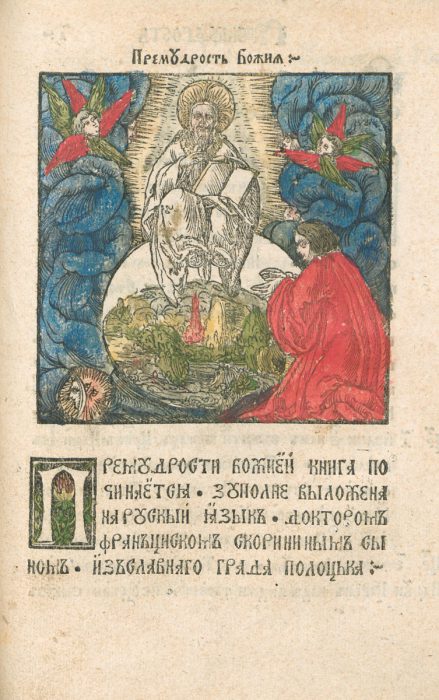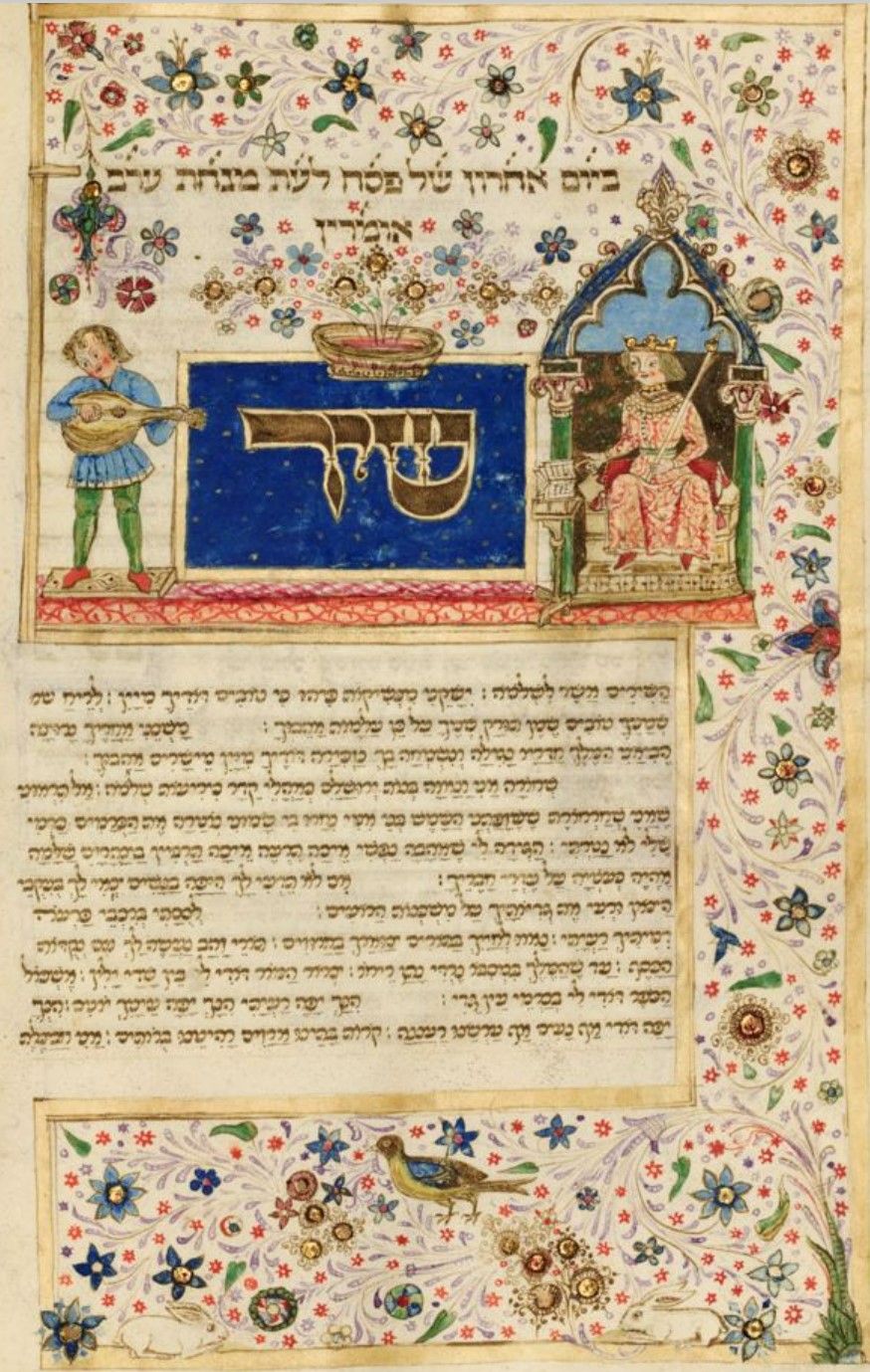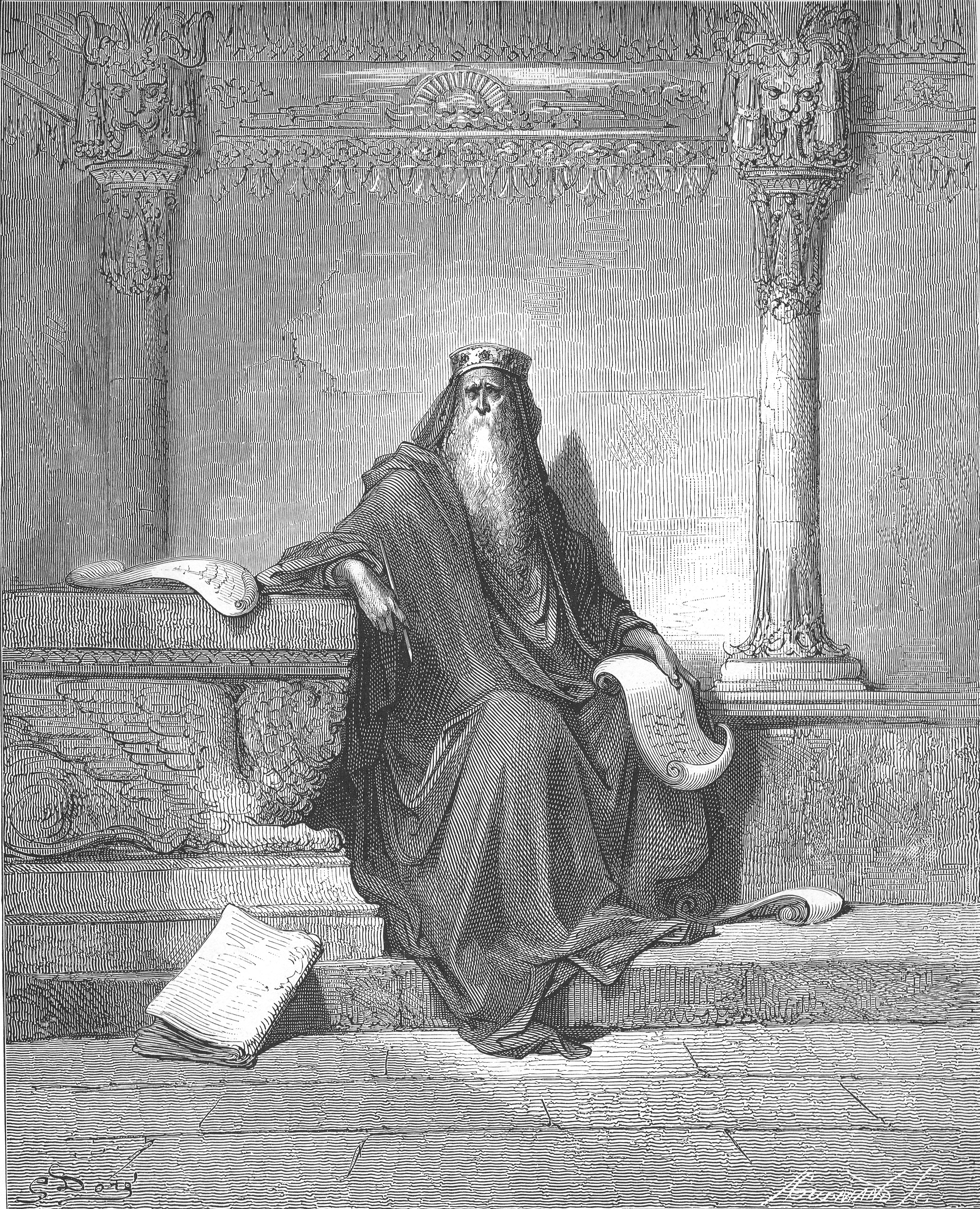|
Harding Bible
The ''Harding Bible'' is a 12th-century illuminated Latin Bible created in Cîteaux Abbey during the abbacy of Stephen Harding, dated 1109. It belongs to a corpus of manuscripts illuminated in the Cîteaux scriptorium in the 12th century, most of which is now held in the public library of the city of Dijon (ms.12-15). It is considered a masterpiece of Cistercian book illumination. History The Harding Bible was created at the behest of Stephen Harding, one of the founders of the Cistercian order and abbot of the Cîteaux Abbey from 1109 to 1112. The ''monitum'', inserted at the end of the first tome (ms.13, fol.170v), records the date 1109 and relates the context of its creation. It stipulates that Harding had the scriptures copied from several manuscripts in order to remain as close to Jerome's Vulgate as possible. For the Old Testament, he also states he reached out to rabbis who supplied the Chaldean and Hebraic versions to resolve problematic passages. The second tome (ms.14- ... [...More Info...] [...Related Items...] OR: [Wikipedia] [Google] [Baidu] |
Bible
The Bible is a collection of religious texts that are central to Christianity and Judaism, and esteemed in other Abrahamic religions such as Islam. The Bible is an anthology (a compilation of texts of a variety of forms) originally written in Hebrew, Aramaic, and Koine Greek. The texts include instructions, stories, poetry, prophecies, and other genres. The collection of materials accepted as part of the Bible by a particular religious tradition or community is called a biblical canon. Believers generally consider it to be a product of divine inspiration, but the way they understand what that means and interpret the text varies. The religious texts were compiled by different religious communities into various official collections. The earliest contained the first five books of the Bible, called the Torah in Hebrew and the Pentateuch (meaning 'five books') in Greek. The second-oldest part was a collection of narrative histories and prophecies (the Nevi'im). The third co ... [...More Info...] [...Related Items...] OR: [Wikipedia] [Google] [Baidu] |
Books Of Kings
The Book of Kings (, ''Sefer (Hebrew), Sēfer Malik, Məlāḵīm'') is a book in the Hebrew Bible, found as two books (1–2 Kings) in the Old Testament of the Christian Bible. It concludes the Deuteronomistic history, a history of ancient Israel also including the books of Book of Joshua, Joshua, Book of Judges, Judges, and Books of Samuel, Samuel. Biblical commentators believe the Books of Kings mixes legends, folktales, miracle stories and "fictional constructions" in with the annals for the purpose of providing a Theology, theological explanation for the Siege of Jerusalem (587 BC), destruction of the Kingdom of Judah by Babylon in c. 586 BC and to provide a foundation for a return from Babylonian captivity, Babylonian exile.Sweeney, p1/ref> The two books of Kings present a history of ancient Israel and Judah, from the death of King David to the release of Jehoiachin from imprisonment in Babylon—a period of some 400 years (). Scholars tend to treat the books as cons ... [...More Info...] [...Related Items...] OR: [Wikipedia] [Google] [Baidu] |
Book Of Sirach
The Book of Sirach (), also known as The Wisdom of Jesus the Son of Sirach, The Wisdom of Jesus son of Eleazar, or Ecclesiasticus (), is a Jewish literary work originally written in Biblical Hebrew. The longest extant wisdom book from antiquity, it consists of ethical teachings, written approximately between 196 and 175 BCE by Yeshua ben Eleazar ben Sira (Ben Sira), a Hellenistic Jewish scribe of the Second Temple period. Ben Sira's grandson translated the text into Koine Greek and added a prologue sometime around 117 BCE. The prologue is generally considered to be the earliest witness to a tripartite canon of the books of the Hebrew Bible and thus the date of the text is the subject of intense scrutiny by biblical scholars, since it has implications for the development of the Hebrew Bible canon. Although the Book of Sirach is not included in the Hebrew Bible, and therefore not considered scripture in Judaism, it is included in the Septuagint and the Old Testament of the Cat ... [...More Info...] [...Related Items...] OR: [Wikipedia] [Google] [Baidu] |
Book Of Wisdom
The Book of Wisdom, or the Wisdom of Solomon, is a book written in Greek and most likely composed in Alexandria, Egypt. It is not part of the Hebrew Bible but is included in the Septuagint. Generally dated to the mid-first century BC, or to the reign of Caligula (AD 37–41), the central theme of the work is "wisdom" itself, appearing under two principal aspects. The first aspect is, in its relation to mankind, wisdom is the perfection of knowledge of the righteous as a gift from God showing itself in action. The second aspect is, in direct relation to God, wisdom is with God from all eternity. It is one of the seven sapiential or wisdom books in the Septuagint, the others being Psalms, Proverbs, Ecclesiastes, Song of Songs (Song of Solomon), Job, and Sirach. It is one of the deuterocanonical books, i.e. it is included in the canons of the Catholic Church and the Eastern Orthodox Church, but most Protestants consider it part of the Apocrypha. Structure, genre and content Th ... [...More Info...] [...Related Items...] OR: [Wikipedia] [Google] [Baidu] |
Book Of Esther
The Book of Esther (; ; ), also known in Hebrew language, Hebrew as "the Scroll" ("the wikt:מגילה, Megillah"), is a book in the third section (, "Writings") of the Hebrew Bible. It is one of the Five Megillot, Five Scrolls () in the Hebrew Bible and later became part of the Christian Old Testament. The book relates the story of a Jews, Jewish woman in Achaemenid Empire, Persia, born as Hadassah but known as Esther, who becomes queen of Persia and thwarts a genocide of her people. The story takes place during the reign of King Ahasuerus in the Achaemenid Empire, First Persian Empire. Queen Vashti, the wife of King Ahasuerus, is banished from the court for disobeying the king's orders. A beauty pageant is held to find a new queen, and Esther, a young Jewish woman living in Persia, is chosen as the new queen. Esther's cousin Mordecai, who is a Jewish leader, discovers a plot to kill all of the Jews in the empire by Haman, one of the king's advisors. Mordecai urges Esther to ... [...More Info...] [...Related Items...] OR: [Wikipedia] [Google] [Baidu] |
Book Of Ezra
The Book of Ezra is a book of the Hebrew Bible which formerly included the Book of Nehemiah in a single book, commonly distinguished in scholarship as Ezra–Nehemiah. The two became separated with the first printed Mikraot Gedolot, rabbinic bibles of the early 16th century, following late medieval Latin Christian tradition. Composed in Hebrew and Aramaic, its subject is the Return to Zion following the close of the Babylonian captivity. Together with the Book of Nehemiah, it represents the final chapter in the historical narrative of the Hebrew Bible. The Book of Ezra is divided into two parts: the first telling the story of the first return of exiles in the first year of Cyrus the Great (538 BC) and the completion and dedication of the new Temple in Jerusalem in the sixth year of Darius I of Persia, Darius I (515 BC); the second telling of the subsequent mission of Ezra to Jerusalem and his struggle to purify the Jews from marriage with non-Jews. In the book's recurr ... [...More Info...] [...Related Items...] OR: [Wikipedia] [Google] [Baidu] |
Books Of Chronicles
The Book of Chronicles ( , "words of the days") is a book in the Hebrew Bible, found as two books (1–2 Chronicles) in the Christian Old Testament. Chronicles is the final book of the Hebrew Bible, concluding the third section of the Jewish Tanakh, the Ketuvim ("Writings"). It contains a genealogy starting with Adam and a history of ancient Judah and Israel up to the Edict of Cyrus in 539 BC. The book was translated into Greek and divided into two books in the Septuagint in the mid-3rd century BC. In Christian contexts Chronicles is referred to in the plural as the Books of Chronicles, after the Latin name given to the text by Jerome, but is also referred to by its Greek name as the Books of Paralipomenon. In Christian Bibles, they usually follow the two Books of Kings and precede Ezra–Nehemiah, the last history-oriented book of the Protestant Old Testament. Summary The Chronicles narrative begins with Adam, Seth and Enosh, and the story is then carried forward, almos ... [...More Info...] [...Related Items...] OR: [Wikipedia] [Google] [Baidu] |
Book Of Daniel
The Book of Daniel is a 2nd-century BC biblical apocalypse with a 6th-century BC setting. It is ostensibly a narrative detailing the experiences and Prophecy, prophetic visions of Daniel, a Jewish Babylonian captivity, exile in Babylon. The text features prophecy rooted in Jewish history as well as a eschatology, portrayal of the end times that is cosmic in scope and political in its focus. The message of the text intended for the original audience was that just as the Yahweh, God of Israel saves Daniel from his enemies, so too he would save the Israelites in their present oppression. The Hebrew Bible includes Daniel as one of the Ketuvim, while Christian biblical canons group the work with the major prophets. It divides into two parts: a set of six court tales in chapters 1–6, written mostly in Biblical Aramaic, and four apocalyptic visions in chapters 7–12, written mainly in Late Biblical Hebrew; the Septuagint, the earliest extant Greek translation of the Hebrew ... [...More Info...] [...Related Items...] OR: [Wikipedia] [Google] [Baidu] |
Song Of Songs
The Song of Songs (), also called the Canticle of Canticles or the Song of Solomon, is a Biblical poetry, biblical poem, one of the five ("scrolls") in the ('writings'), the last section of the Tanakh. Unlike other books in the Hebrew Bible, it is erotic poetry; lovers express passionate desire, exchange compliments, and invite one another to enjoy. The poem narrates an intense, poetic love story between a woman and her lover through a series of sensual dialogues, Dream, dreams, Metaphor, metaphors, and warnings to the “daughters of Jerusalem” not to awaken love before its time. Modern scholarship tends to hold that the lovers in the Song are unmarried, which accords with its ancient Near East context. The women of Jerusalem form a Greek chorus, chorus to the lovers, functioning as an audience whose participation in the lovers' erotic encounters facilitates the participation of the reader. Most scholars view the Song of Songs as erotic poetry celebrating human love, not di ... [...More Info...] [...Related Items...] OR: [Wikipedia] [Google] [Baidu] |
Ecclesiastes
Ecclesiastes ( ) is one of the Ketuvim ('Writings') of the Hebrew Bible and part of the Wisdom literature of the Christian Old Testament. The title commonly used in English is a Latin transliteration of the Greek translation of the Hebrew word ( or ). An unnamed author introduces "The words of Kohelet, son of David, king in Jerusalem" (Ecclesiastes 1:1, 1:1) and does not use his own voice again until the final verses (12:9–14), where he gives his own thoughts and summarises the statements of Kohelet; the main body of the text is ascribed to Kohelet. Kohelet proclaims (1:2) "Vanity of vanities! All is futile!" The Hebrew word , 'vapor' or 'breath', can figuratively mean 'insubstantial', 'vain', 'futile', or 'meaningless'. In some versions, vanity is translated as 'meaningless' to avoid the confusion with the other definition of vanity. Given this, the next verse presents the basic existential question with which the rest of the book is concerned: "What profit can we show for a ... [...More Info...] [...Related Items...] OR: [Wikipedia] [Google] [Baidu] |
Book Of Proverbs
The Book of Proverbs (, ; , ; , "Proverbs (of Solomon)") is a book in the third section (called Ketuvim) of the Hebrew Bible (Tanakh)/the Christian Old Testament. It is traditionally ascribed to King Solomon and his students. When translated into Ancient Greek, Greek and Latin, the title took on different forms: in the Greek Septuagint (LXX), it became (, "Proverbs"); in the Latin Vulgate, the title was —from which the English name is derived. Proverbs is not merely an anthology but a "collection of collections" relating to a pattern of life that lasted for more than a millennium. It is an example of Biblical wisdom literature and raises questions about values, moral behavior, the meaning of human life, and right conduct, and its Theology, theological foundation is that "the fear of God is the beginning of wisdom." Wisdom (personification), Wisdom is personified and praised for her role in creation; God created her before all else and gave order to chaos through her. As humans ... [...More Info...] [...Related Items...] OR: [Wikipedia] [Google] [Baidu] |
Psalms
The Book of Psalms ( , ; ; ; ; , in Islam also called Zabur, ), also known as the Psalter, is the first book of the third section of the Tanakh (Hebrew Bible) called ('Writings'), and a book of the Old Testament. The book is an anthology of Biblical Hebrew, Hebrew religious hymns. In the Judaism, Jewish and Western Christianity, Western Christian traditions, there are 150 psalms, and several more in the Eastern Christianity, Eastern Christian churches. The book is divided into five sections, each ending with a doxology, a hymn of praise. There are several types of psalms, including hymns or songs of praise, communal and individual laments, royal psalms, Imprecatory Psalms, imprecation, and individual thanksgivings. The book also includes psalms of communal thanksgiving, wisdom, pilgrimage and other categories. Many of the psalms contain attributions to the name of David, King David and other Biblical figures including Asaph (biblical figure), Asaph, the Korahites, sons of Kora ... [...More Info...] [...Related Items...] OR: [Wikipedia] [Google] [Baidu] |








